
The ethical issues surrounding spice production and trade are complex, ranging from the impact on communities to the environmental impacts. There are ways that you can support ethical trade practices, and help to reduce these impacts on the world we live in.
Agroforestry is one way that can be implemented to help reduce the impact of spice production. This involves growing spices alongside other crops and trees in a managed ecosystem, which can reduce deforestation, conserve natural habitats, and promote biodiversity.
Impact on communities
The ethical issues surrounding spice production and trade are significant. They affect communities, the environment and workers across the globe.
The global demand for spices has long been a driving force in the world economy. It shaped ancient civilizations and helped to create the first international trade routes.
Today, the market for spices is growing rapidly, despite many challenges. The challenge is to ensure that it is sustainable while also ensuring that consumers have access to high quality products at affordable prices.
One solution is to support farmers and producers of spices with training, certifying them as well as improving their capacities to become competitive in the market. This can improve their incomes and help to reduce poverty.
Impact on the environment
The world’s trading routes have been shaped by spice demand over centuries. But as demand continues to grow, the trade is increasingly a source of conflict and injustice.
Using sustainable practices in spice production can greatly improve the environment. In addition, these practices benefit farmers and businesses throughout the supply chain.
For example, agroforestry can help to conserve biodiversity in spice plantations. It reduces the need for agrochemicals and increases the quality of soils.
Another way of reducing the environmental impact is to ensure that chemicals are used responsibly. This can include controlling the use of water and detergents during processing.
Increasing sustainability is one of the most important goals for many companies, particularly those who rely on spices. As a consumer, you can support these efforts by choosing spices that are organic or Fairtrade.
Impact on workers
Spices, a staple ingredient in many different cuisines, are a source of income for millions of smallholder farmers around the world. However, their production can have a negative impact on workers and the environment.
For example, workers are often exposed to chemicals, including diacetyl, which is used in butter flavorings and other flavourings. This can lead to a variety of health issues, including respiratory and skin symptoms.
Additionally, the extraction and processing of spices can also have a negative impact on the environment. This can include deforestation and pollution from agrochemicals.
As a responsible consumer, you can help reduce the impact of spice production on workers and the environment by buying certified or single-origin products. These are certified by a third party to ensure that the production and supply chain is ethically and sustainably managed.
Impact on consumers
The ethical issues surrounding spice production and trade are impacting not just the people who produce spices, but also the consumers that buy them. These products are largely grown thousands of miles away from the consumer who craves them, making it important that we be responsible consumers and contribute to ethical trade practices.
Buying the right kind of spices is important because they help us make healthy and delicious meals. They can even increase our immunity and reduce our risk of getting sick.
However, this comes with a cost: commercially grown spices are usually produced by using fertilizers and pesticides. These can cause environmental harm and damage the health of farm workers and animals.
This is why it’s important to choose organic and sustainably-produced spices. This will not only ensure that you’re buying a healthy and delicious product, but it will also help support sustainable farmers’ livelihoods.
Frequently Asked Questions
What are the typical spices, condiments, and seasonings used in their dishes in Thailand?
Thai cuisine is an amalgamation of influences from across Asia. Its roots are found in India and China, as well as Southeast Asia.
Freshness, the essential ingredient of Thai cuisine, is key. It is easier to get the best flavour from ingredients if they are picked earlier and cooked quickly. This is why meat, fish and vegetables, as well fruits, vegetables, herbs, seeds, and nuts are often eaten raw, then heated.
Spices and sauces enhance the flavor and complexity of dishes. Fresh basil, cilantro, mint, coriander (cilantro), lemongrass, ginger, turmeric, garlic, chillies, chilli paste, soy sauce, tamarind juice, oyster sauce, palm sugar, coconut milk, lime leaves, galangal root, curry powder, shrimp paste, fish sauce, tamarind water, rice vinegar, etc. These ingredients are common.
What is Thai cooking's most famous ingredient?
Thailand's two main ingredients form the heart of all Thai dishes. They are rice and curry. These two essential elements come together to create an unforgettable flavor.
Thais call this combination "Khao pad Krai," which translates to "the best dish." This is because the two basic foods can be combined to create something truly delicious and irresistible.
The same is true of your personal life. If you combine hard work with perseverance, you can achieve great success.
You can achieve success, just like Khao Pad Krai. Passion and purpose are the key ingredients. You'll create something amazing if you combine them.
When you are craving Thai food, don't forget to add rice and curry! Have fun with it!
Thai food uses paprika?
Yes. Yes.
Thai food is a good example of paprika.
Paprika dates back more than 5,000 years to Ancient Greece. The Hungarian language means "pepper" and the word "paprika".
What are the seven Indian spices?
Indian spices are a group of spices used in Indian food. They are usually made up of cardamoms, cumins, corianders, turmeric and fenugreek. These spices add flavour and aroma to dishes by blending and complementing natural ingredients such as meats and vegetables. Spices create unique flavour profiles, which make Indian cuisine so distinctive.
Cardamom is sweet and pungent with hints ginger and citrus. It is commonly used to flavour rice dishes like biryani and curries. Cumin has a earthy aroma and a rich, bitter flavour. It is commonly added to curries and meat dishes, as well as dals. Coriander is sweet and citrusy, adding a hint of nuttiness to dishes. It is used often to season vegetables and lentils.
Turmeric has an earthy, spicy flavour that includes mustard, spices and pepper hints. This spice is commonly used in curries and other dishes and has a golden hue. Fenugreek is a spice with a rich aroma and earthy tones. It also has a bitter taste. It is commonly used to season meat dishes, such as kebabs and curry. Ginger is pungent and spicy with hints o citrus. It gives a great kick to soups, curries, and chutneys. Asafoetida (hing), has a strong flavor and pungent smell that can be used in place of onion and garlic in certain recipes.
Together, these spices create unique flavors that make Indian cooking so distinct.
What spices are commonly used in Thai cuisine?
Thai cuisine is known for its complex flavour combinations. These delicious flavours are made from unique and flavorful ingredients that make many delicious dishes.
Common ingredients for Thai cooking are galangal, lemongrass, kaffirlim leaves, chillies and garlic.
Each one of these spices adds to Thai cuisine’s unique flavour profile. You will often find lemongrass in soups, curries and stews. Galangal gives dishes a peppery flavor; chilies add a spicy kick to dishes. Shrimp paste adds umami depth to dishes. Coriander adds a mild yet fragrant aroma to dishes. Cumin adds a smokey flavour to dishes. Turmeric gives dishes a bright yellow hue.
These spices are combined to create complex flavour profiles specific to Thai cuisine. Chefs can create delicious and aromatic dishes by using a variety of spices. These spices will help you bring Thailand's flavours to your kitchen.
What are the main Flavours of Thai Cooking?
Thai cuisine includes several distinct regional cuisines. These include Northern, Central and Southern Thai food. Each region has its distinctive flavour profile.
Thai food is known for its sweet, salty and sour flavors.
Thais appreciate sweetness. It makes Thai food taste better. Thai cuisine relies heavily on sweet ingredients, such as coconut milk (gula melaka), and palm sugar.
In Thailand, sourness is very popular. Hot dishes are often paired with sour foods. This helps to balance the heat.
Thai food has a lot of spicy ingredients. Thai cuisine is rich in spices like galangal, ginger root and chilli pepper.
What are the uses of Thai spice?
We've all heard the term "Thai spice" thrown around without knowing exactly what it means. It makes our mouths water when we try it.
It isn't just any spice. It's an essential ingredient, which adds depth and flavor to dishes otherwise bland.
Although there are many recipes that call for Thai spices in large numbers, very few recipes actually use the true thing. Let's find out how to add these wonderful flavors to your dishes.
Thais have used herbs and spices since ancient times to enhance food and drink. Thai, which means "to make", comes from the Sanskrit word.
Most Thais like spicy food, even today. This preference can be attributed to Thailand’s hot weather. It is difficult to stay warm when you don't have something to drink. Additionally, Thais consume much more chili peppers than Europeans or Americans.
You can learn the most about Thai spices by visiting a local Asian grocery. There you will find a variety of ingredients such as dried chilies fresh basil leaves curry paste and ground black pepper.
You might also find whole peppercorns and cloves as well as cinnamon sticks, star anise pods (star anise), cardamom pods ginger root, cumin seeds coriander seeds seeds, fennel seed, nutmeg mace, mustard seeds, saffron threads garlic, onion, rice vinegar, and tamarind juice.
There are two types of spices in Thai cuisine: dry and wet. Dry spices are generally ground, while wet spices can be crushed or pounded finely.
Dry spices are typically added directly to a dish. For example, you can sprinkle ground red pepper onto your chicken soup. A paste is made by combining wet spices and oil with butter or butter.
Wet spices can be used in sauces, dressings, and marinades. The most popular wet spices are fish sauce (oyster sauce), sesame oil, sesame paste, curry paste, and Hoisin sauce.
To make Thai food at your home, it is important to understand which spices are best with particular ingredients.
Red pepper flakes should be used if you're using beef. If you use seafood like shrimp, you should use white pepper instead.
If you don't live near an Asian market, you can order online. You can find everything here, from dried chilies to exotic spices and herbs.
You might want to try these Thai recipes next time you feel hungry.
Statistics
- Their 14 to 20 percent essential oil content means that cloves have the highest concentration of aroma compounds of any spice. (masterclass.com)
- India contributes to 75% of global spice production. (en.wikipedia.org)
- According to a recent survey, professional chefs and many home cooks use spices; usage has only continued to grow from 2011 to now. (hospitalityinsights.ehl.edu)
External Links
pubmed.ncbi.nlm.nih.gov
amazon.com
- Amazon.com. Spend less. Smile more.
- Amazon.com : Morton & Bassett Whole Nutmeg 1.9 Oz : Nutmeg Spices And Herbs : Grocery & Gourmet Food
ncbi.nlm.nih.gov
- Validation and Development of Novel Lifestyle and Dietary Inflammation Scores – PMC
- PubMed: Molecular mechanisms curcumins suppressing cancer angiogenesis, tumorigenesis, and metastasis. We focus on the NF-kB pathway.
penzeys.com
How To
How do you store your cooking spices?
How to store cooking spices in a way that maximizes their performance. First, we must understand how food is stored.
Because light can diminish the flavour of spices, they should be kept in sealed containers. This is due to oxygen combining with organic compounds, such as spices.
To prevent oxidation, spices should be stored in dark cupboards. Spice tends to lose its flavour quickly if these conditions aren't met.
It is the best way to preserve spices' flavours by keeping them out of direct sunlight.
To create a flavorful drink, you can add spices and herbs to water. To make a cinnamon-flavored drink, combine two teaspoons of ground ginger with half a cup of warm water. Stir and mix well. Serve immediately with a squeeze of lemon.
Dry herbs and spices can also be used in soups, stews or casseroles. Sprinkle the spice mixture evenly on the dish, and let it sit for five to ten minutes before you serve.
Leftover cooked vegetables, fruits and meats, as well as leftover cheese, breads, crackers, cookies or cakes can be added to favorite recipes for snacks.
If you want to take advantage of the flavours of fresh herbs and spices, chop or tear them up and add them to foods while they're still hot. You can freeze herbs or spices by placing them on ice cube tray or muffin cups. Once frozen, place them in freezer bags or zip-top bags.
Resources:
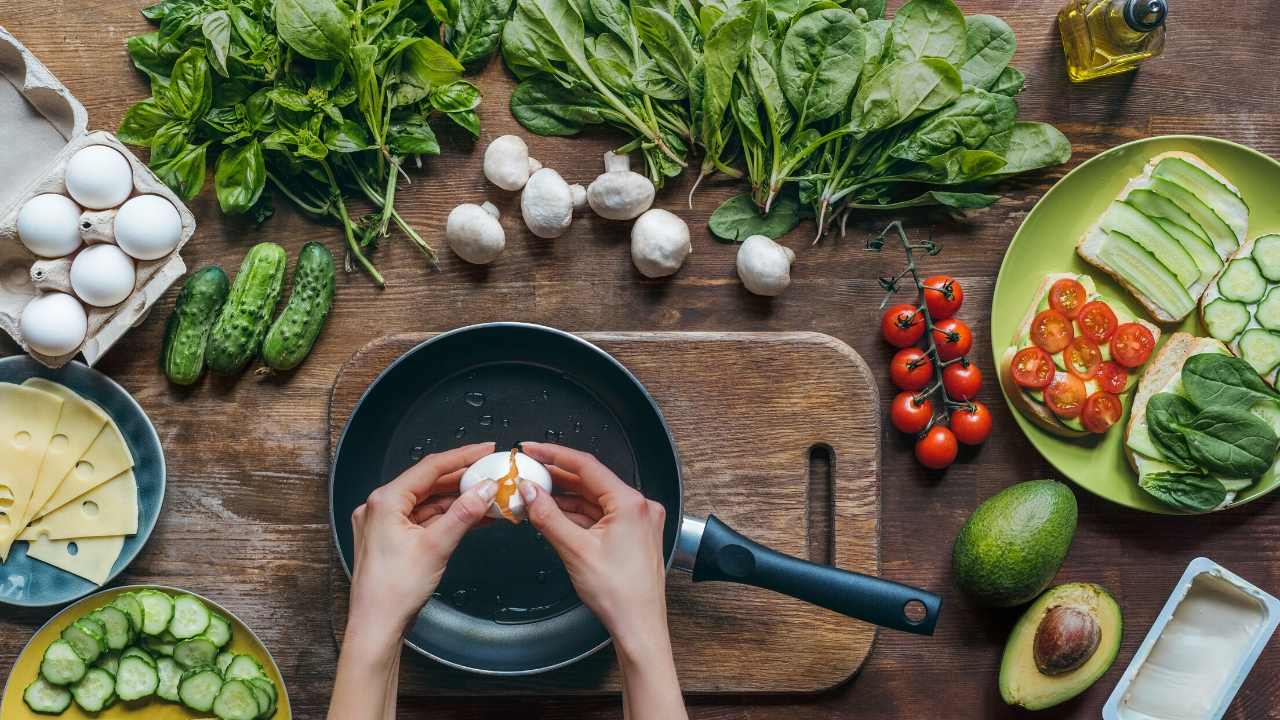 |
What Happens If You EAT WALNUTS Everyday For 30 Days? | Dr. Steven GundryIf you’re looking for a new snack, look no further than WALNUTS! These versatile, delicious, nutritious nuts are one of the best options to snack on to improve |
 |
2 Chefs Try to Identify Spices by Taste | Sorted FoodToday we flip the script and put our chef Ben and guest chef James in the hot seat to guess some spice blends! It’s absolutely a competition and we haven’t |
 |
Why Did These Strange 1950s Inventions Kill So Many People?| Hidden Killers | Absolute HistoryDr Suzannah Lipscomb looks at the hidden dangers of the British post-war home. In the 1950s, people embraced modern design for the first time after years of |
 |
The 5 SURPRISING Vegetables You Need To Eat To STAY HEALTHY! | Dr. Steven GundryWe are taught that all vegetables are healthy for us. Dr. Gundry says that is FALSE and not all vegetables are built the same! That’s why he’s here to share |
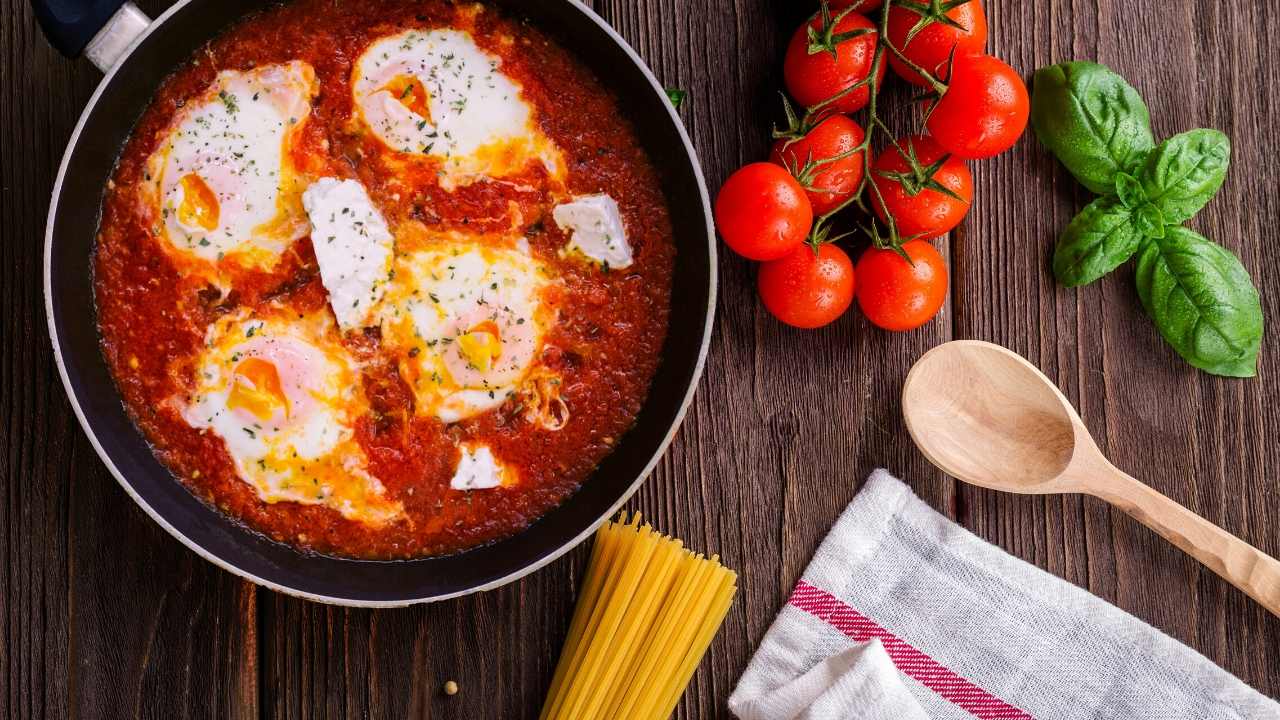 |
The SHOCKING Superfoods You Should NEVER EAT! | Dr. Steven GundrySuperfoods - we’ve all heard about them but what are they really? On today’s episode Dr. Gundry dives right into the superfoods you should and should NOT |
 |
Spice Expert Guesses Cheap vs Expensive Spices | Price Points | EpicuriousIn this episode of 'Price Points', Epicurious challenges spice expert Ethan Frisch of Burlap & Barrel to guess which one of two spices is more expensive. Ethan |
 |
Are Burger King''s Spicy Chicken Fries TOO Hot?For a limited time, Burger King has released their new Spicy Chicken Fries! Featuring a blend of spices added to their classic Chicken Fries, I'll find out how |
 |
Spice - Wikipediadefinition of spices |
 |
How Did Nutmeg Cause Wars In Indonesia? | The Spice Trail | Absolute HistoryKate Humble embarks on a journey around the fabled spice islands of eastern Indonesia in search of two spices that launched epic voyages of discovery, caused |
 |
Learn Every Single Technique For Using Spices in One DishShop the gear in this video (and more) at ProHomeCooks.com ➡️ https://prohomecooks.com/ Getting your kitchen gear from Pro Home Cooks supports more content |
 |
The SHOCKING BENEFITS of Spices On Your Health! (Take One Teaspoon Of This) | Dr. Steven GundryWe all use spices to cook, but did you know that they can be a great tool to incorporate more beneficial polyphenols into your diet? That’s right, with just |
 |
Poultry Seasoning For TurkeyIf you're looking to spice up your turkey meals, you should consider putting poultry seasoning on your bird. Not only is it a great way to add some.. |
 |
Delicious Seasonings to Add Flavor to Your DishesIf you're looking for delicious seasonings to add to your dishes, you're in the right place. There are many options out there, from chili powder to.. |
 |
How to Add Spices to Mac and CheeseThere are a number of spices that you may want to try out when cooking mac and cheese. Some of these ingredients include red peppers, oregano,.. |
 |
Chaat Masala and Garam MasalaChaat masala is a type of spice mix that is used to flavor chaat. It is made from several spices, such as cumin, dried ginger, coriander, asafoetida, |
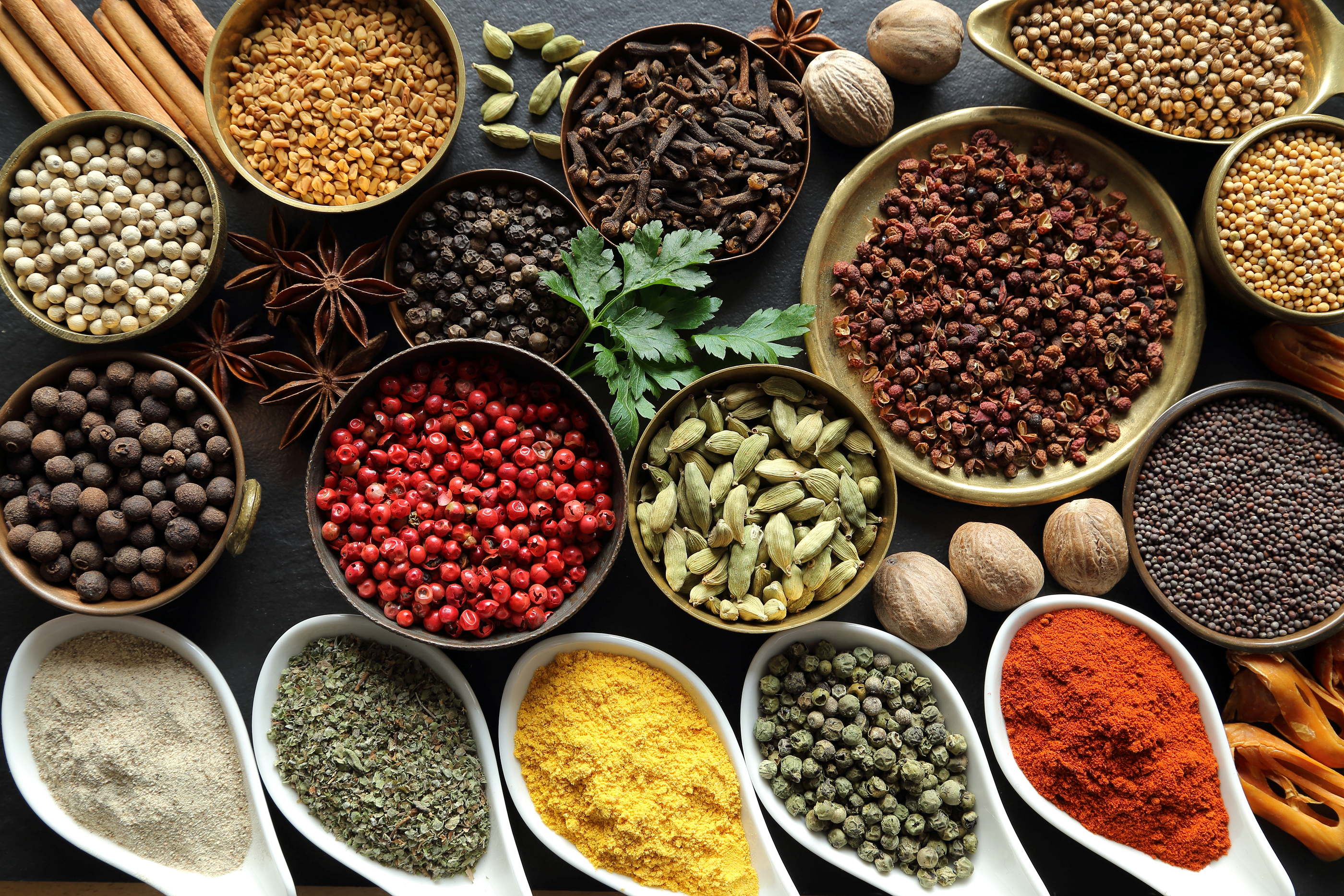 |
27 Essential spiecs you need to knowImportant spices in cooking |
 |
No Salt Seasoning BlendsIf you want to make the perfect grilled chicken or steak, it's time to try a no salt seasoning blend. It's the best way to add flavor to any dish.. |
 |
Coriander Ground Vs Coriander WholeCoriander is one of the most popular herbs used for cooking and can be either whole or ground. Its taste is very mellow, and is perfect for adding a.. |
 |
Homemade Blackening SeasoningMaking your own homemade blackening seasoning is a great way to add flavor and freshness to your dishes. This spice mix can be used in a variety of.. |
 |
Sweet Potato RavioliSweet potato ravioli is a popular pasta dish that is very easy to make. The recipe uses sweet potato as the filling and makes a light and filling.. |
 |
Greek SeasoningGreek seasoning is a common spice used in many types of dishes. For example, it can be used as a dry rub on chicken wings before baking, or it can be |
 |
AbgooshtAbgoosht is a hearty Persian soup that is made from mutton. It is a traditional stew that is thickened with chickpeas. It is also known as Dizi... |
 |
Greek Cabbage RollsOne of the most popular dishes you can find on the menu at Greek restaurants is cabbage rolls. They are a great option when you're on the go and need |
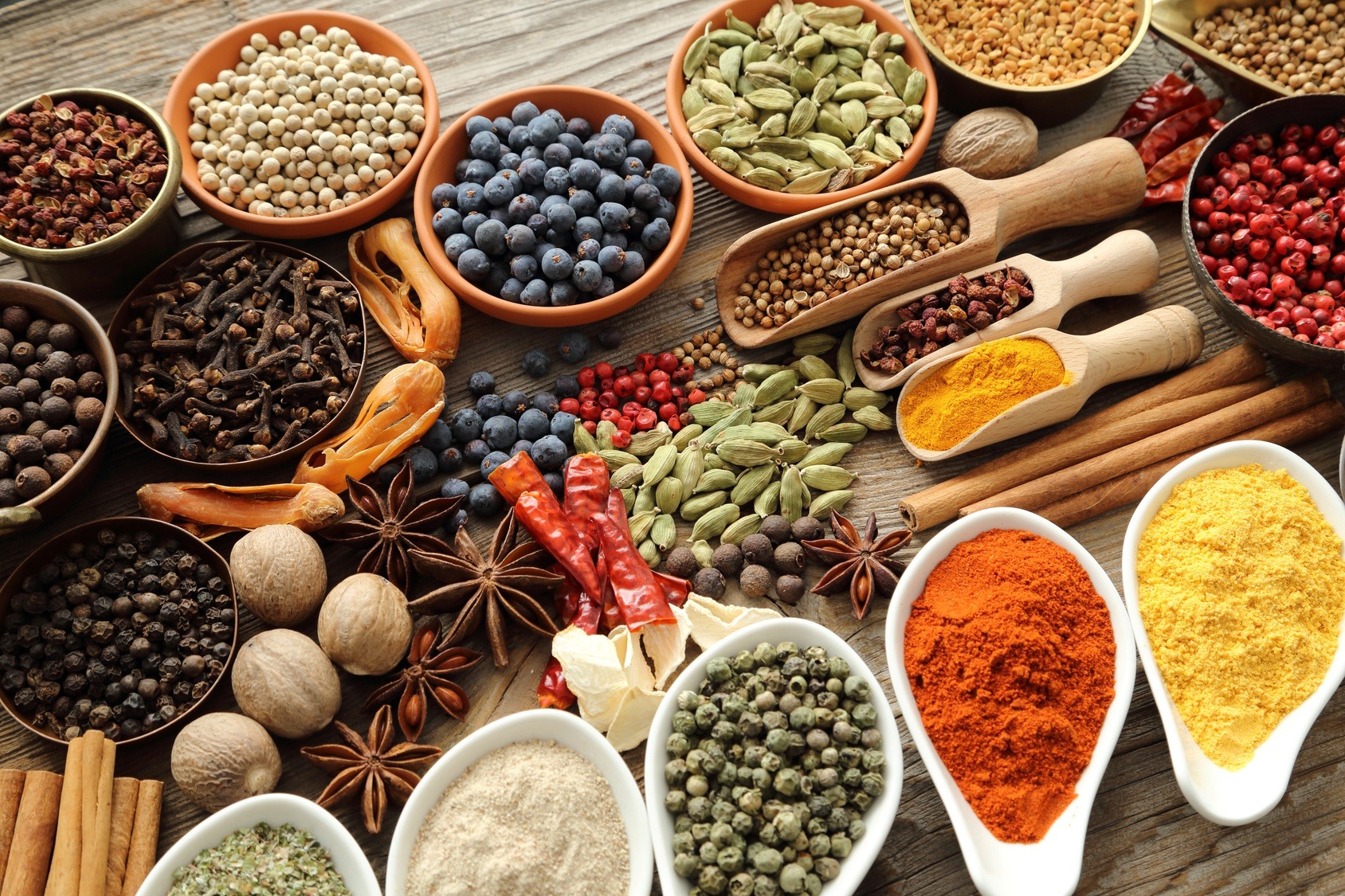 |
Your Herbs and Spices Guides & BlogsHerbs, spice & everything nice, these blog and articles explain the many uses of spices, including spices for weight loss, spices for brewing, and how to store |
 |
Mexican Cauliflower Rice RecipeIf you have been looking for a healthy meal option, you can try making Mexican cauliflower rice. This delicious recipe combines a blend of vegetables, |
 |
A Guide to Indonesian FoodIndonesia is an archipelago country and its cuisine is a mix of regional culinary traditions. Its dishes include sweet and savory dishes, based on.. |
 |
How to Make Homemade Spaghetti SauceSpaghetti is a very popular Italian dish that is made from durum wheat semolina. It is also often enriched with vitamins and minerals. Some people.. |
 |
How to Prepare a Chicken on Skewer RecipeIf you're looking to cook up a tasty meal for the family, why not try out a chicken on skewer recipe? This is a fast, easy dish that your whole.. |
 |
Powdered SpicesThe ingredients for powdered spices are usually either individually roasted or are a combination of a variety of different spices. These include.. |
 |
Air Fryer Chicken ParmesanIf you want to find a delicious and quick way to cook your favorite chicken dishes, try using an air fryer. The results are fantastic and are sure to |
 |
What Type of Cardamom Should You Use in Your Cooking?Cardamom is an ancient spice, used for centuries in the kitchen. When you're using cardamom in your cooking, there are a few things you should know... |
/spices-5689d3013df78ccc1533efad.jpg) |
The Chopping Block Cooking Blog | spicesspices | Visit our blog for recipes, cooking tips and techniques as well as our staff's favorite eats and travel adventures. |
 |
Lasagna SpicesFor people who enjoy lasagna, there are a variety of spices to choose from. Some of the spices include paprika, cayenne pepper, thyme, and fresh.. |
 |
Italian Dressing RecipesIf you are looking for a new way to dress your favorite dishes, you may want to try one of the many Italian dressing recipes out there. These.. |
 |
VIETNAM BUSINESS NEWS OCTOBER 13 - PepperHCMC economy gains strong growth in Jan-SeptGross regional domestic product (GRDP) of HCMC between January and September reached nearly VND1,100 trillion in |
 |
SALMONELA - EU strengthens measures against brazilian pepperAt the beginning of October the European Spice Association inssued a letter direcyed to it members,stating that EU Commision will strengthen the rules on |
 |
Cloves Market Latest NewsRoyal Golden's Cloves Market Latest NewsBy Parsram DhiraniMadagascar - With weeks of slow progression of incoming new crop from field, goods are now |
 |
Important Report - Brazilian Pepper ContractsSince the middle of November when the rainy season finaly came to Brazil, bad weather and heavy rains are threatening Pepper production areas disrupting |
 |
BRAZIL - PEPPER PRODUCTION SUFFERING BAD WEATHERPARTIALLY FLOADED PEPPER PLANTATION IN LINHARES - ESThe heavy and constant rains that have been happening non-stop for more than a month are hampering the |
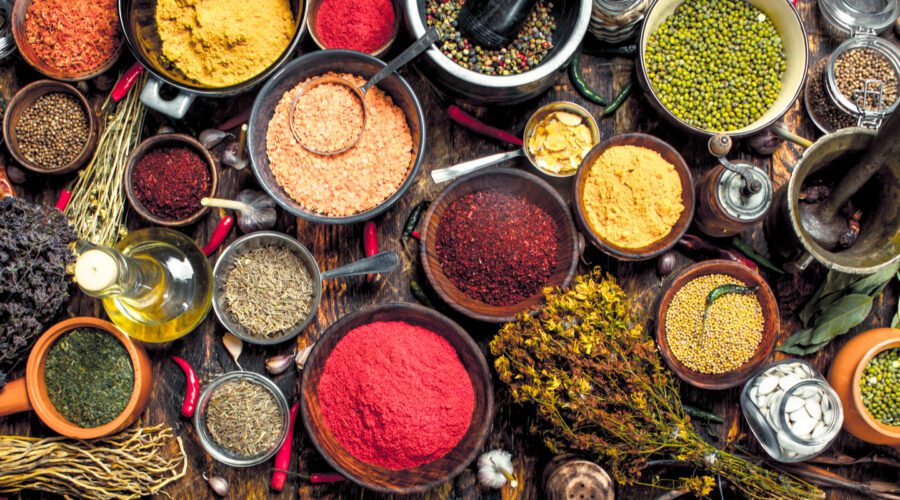 |
Spice Talk - Spice Station - New Ideas for Cooking with Spices!This spice blog writes about Indian fenugreek, Canadian coriander, Egyptian dill weed, Syrian Aleppo pepper, Granada nutmeg, & more from around the world. |
 |
CARDAMOM - Guatemala in line to export around 55,000 MT for the 22-23 SeasonPlease read the short report/comment we received of an operator ofCardamom in GuatemalaHello friends, looking forward to seeing you again next week, wanted to |
 |
UPDATE - VIETNAM PEPPER PRICES FEB 22February 22, 2023|Black Pepper Offers, Vietnam Market Update This week, China is buying slowly, people expect the price will come down a little bit but today, |
 |
Vietnam Pepper exports hit 129 million USD in first two monthsVietnam exported over 41,000 tonnes of pepper worth 129 million USD in the first two months of this year, up 35% in volume, but down 7.4% in value over the |
 |
GLOBAL MARKET OVERVIEW GARLICMarch 2023FreshPlaza.comThe global garlic market is experiencing mixed fortunes, according to recent reports from around the world. In the Netherlands, demand |
 |
Vietnam Pepper market update 13th March 2023 – Week 10.- Pepper price has had an impressive increase in 2023 with an increase from 61,000vnd from January 1, 2023 to 67.000vnd until March 12, 2023, corresponding to |
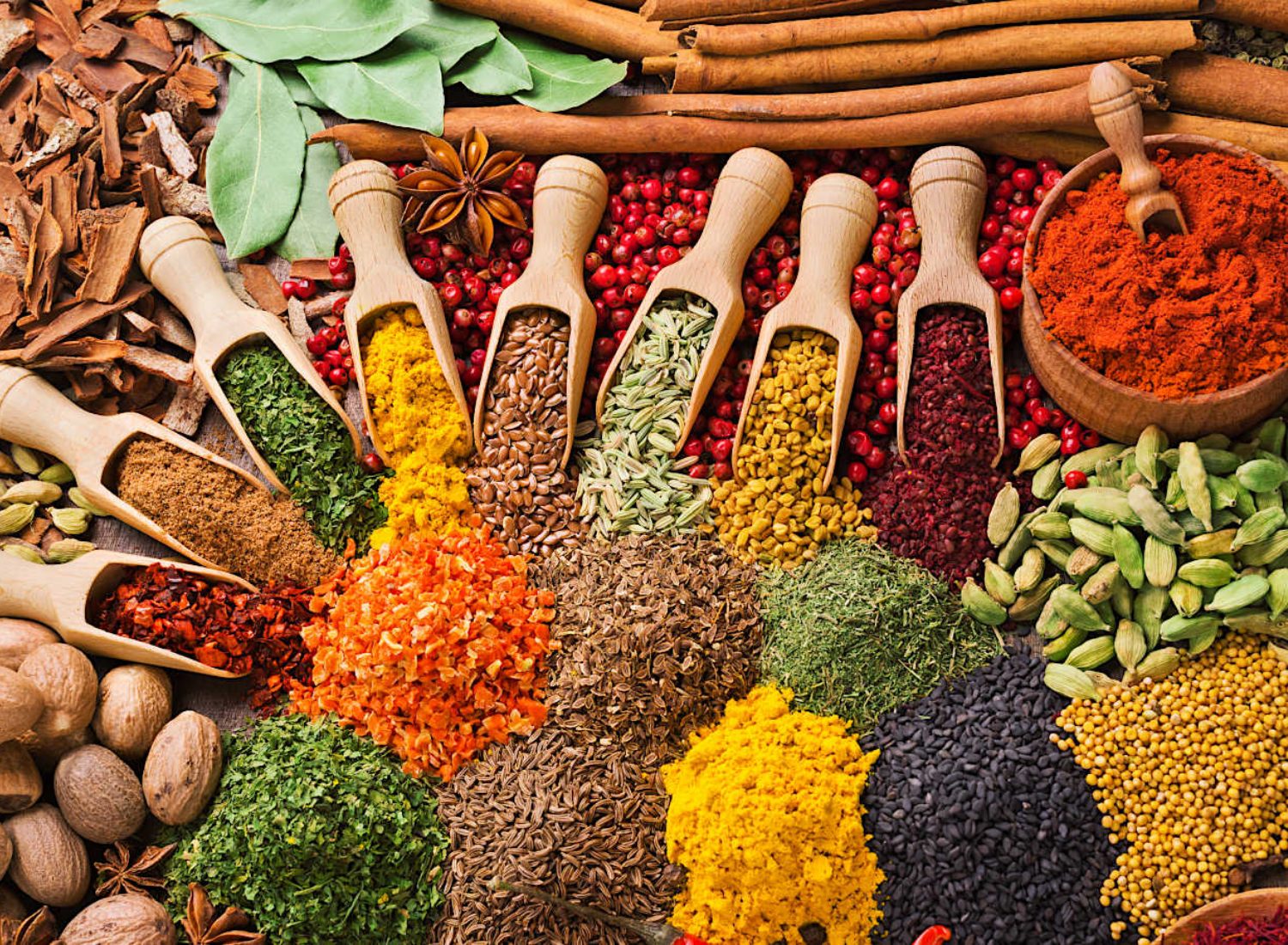 |
Blog | Herbs Spices and Seasonings | High Quality | World of SpiceWorld of Spice is your online store for a massive range of High Quality Herbs Spices and Seasonings. Wholesale, Foodservice and Catering High Quality Herbs |
.png)





